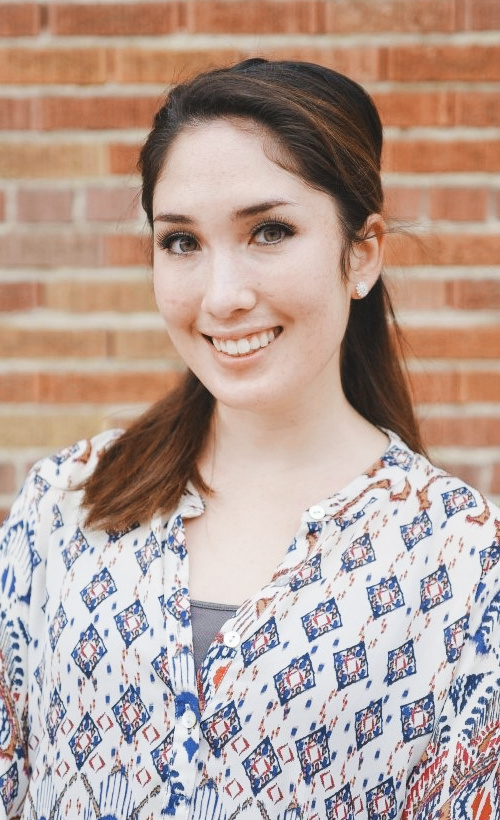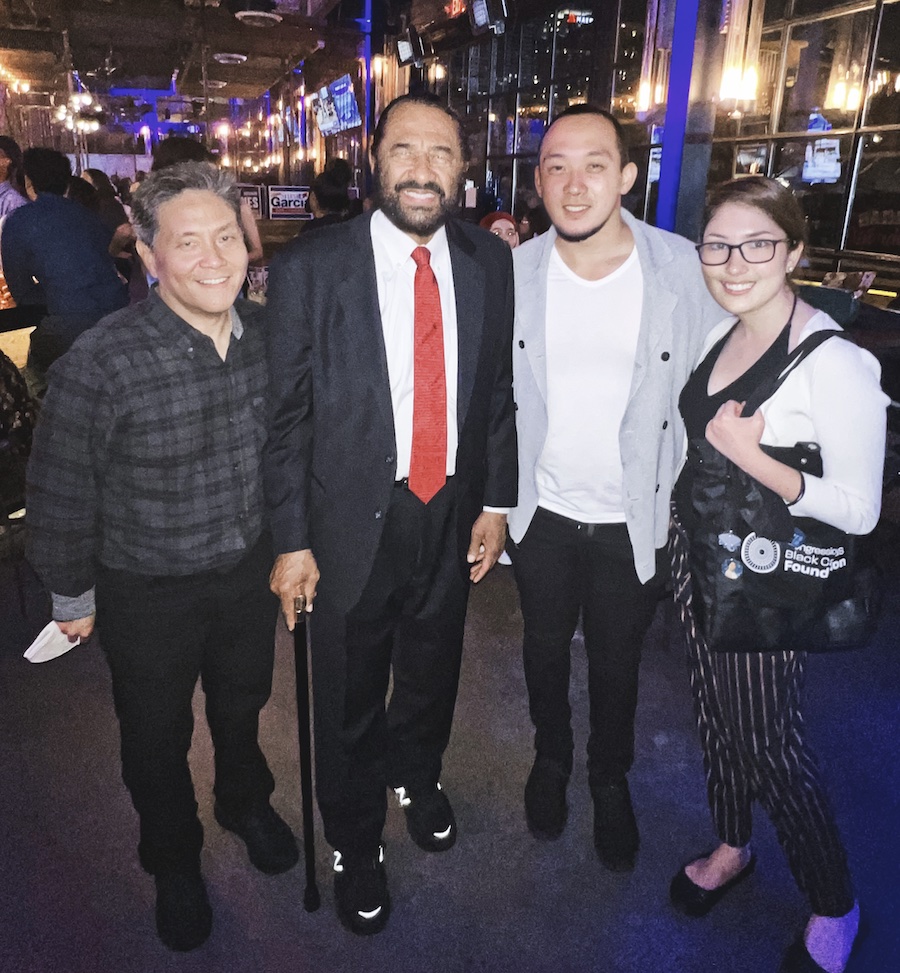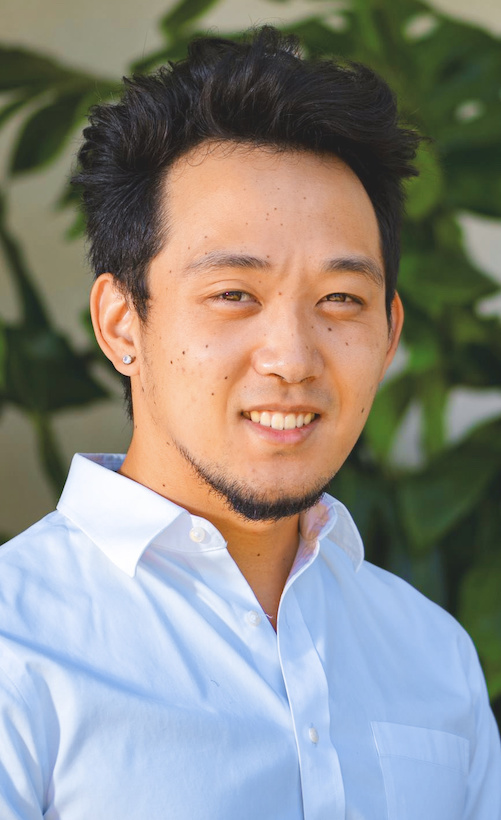By Bridget Keaveney, JACL Norman Y. Mineta Policy Fellow

Bridget Keaveney
On Nov. 6, Michael Tanaka and I made our way to Houston, Texas, as part of a convoy assigned to volunteer with local Get Out the Vote organizers. We were there as part of an effort to encourage registered AAPI voters to place their vote in time for the midterm elections.
The opportunity to canvass the city came through our partners at the National Caucus of Asian Pacific Americans, specifically through its Civic Engagement Committee. Thanks to the generous support provided to us by NCAPA, Michael and I were provided the chance to assist local volunteers in Texas, one of NCAPA’s target states for the election.
Mai-Thy Tyler, director of community engagement at NCAPA, was instrumental in our outreach efforts. Thanks to Mai, not only were Michael and I equipped to help the team in Texas, but we were also set up for success thanks to their help in coordinating our travel, lodging and meals during our GOTV deployment.
Michael and I spent our time in Texas knocking on the doors of AAPI households that previously registered to vote. Our goal was to encourage individuals who hadn’t already placed their vote for the midterm election to do so.
According to APIA Vote, voter turnout amongst AAPIs is crucial given that they are the fastest-growing population in the United States; as such, they can shape elections and provide impactful economic strength.
Thanks to our partners at NCAPA, Michael and I were paired with local activists who guided us through Houston’s Alief neighborhood, known as one of the most ethnically diverse areas in the city, which boasts a significant AAPI population.
Our team members for the day hailed from the National Asian Pacific American Women Forum’s local Houston chapter. Our partners included Georgia Rodriguez and Kimberly Buettner, both of whom work to support NAPAWF’s local civil rights and social action agenda in Texas.
Both Michael and I were touched by the warm welcome we received from Kim and Georgia, and we were even more impressed by their determination to inform and encourage local Texans to register to vote.
Their passion to deepen community relationships while promoting the importance of civic engagement and advocacy, especially in the wake of Roe v. Wade, was awe-inspiring. I feel incredibly honored to have worked alongside such tenacious and caring activists as Georgia and Kim.

Election watch party with (from left) Gary Nakamura (JACL Houston chapter president), Rep. Al Green (D-Texas 9th District), Michael Tanaka (JACL Daniel K. Inouye Policy Fellow) and Bridget Keaveney (Norman Y. Mineta Policy Fellow)
As someone who had never canvassed before, I couldn’t have asked for a better first experience.
I feel fortunate to have partnered with Georgia and Kim and even more grateful to have been assigned in a place like Houston.
Going into the experience, I had little to no idea as to what to expect out of my time in the South; while I was cognizant of the fact that there are areas in Texas where discrimination runs rampant, as there is everywhere, I was pleasantly surprised to experience quite the opposite.
I was surprised to learn how multicultural and diverse Houston was and even more impressed by the local civil rights scene, which is made up of some of the most-dedicated and driven activists I’ve had the pleasure of meeting.
In total, Michael and I, along with Georgia and Kim, knocked on a total of 120 homes. For those who were not home, a leaflet was left that included resources and information on how to register to vote. The information featured on these flyers was made available in several different languages to best cater to the communities we committed ourselves to serve.
Once we completed our time canvassing, Michael and I met with JACL Houston Chapter President Gary Nakamura. Gary was kind enough to invite us to a local election watch party on the night of the Midterm Elections, whereby we serendipitously ran into several members of Congress and Texas’ House of Representatives.
Notable members included Rep. Al Green and State Rep. Gene Wu. It was an experience I will never forget, and I am forever grateful to Gary for making our time in Texas memorable.
We owe Gary and other chapter presidents a debt of gratitude for their selfless efforts in advancing the mission and values of JACL and working so hard to ensure that as an organization, we remain committed to our promise to eradicate all forms of hate and injustice.
My time in Texas will be something I will forever cherish, and I hope to find another excuse soon to visit again to support the local community there.
As a die-hard “Friday Night Lights” fan, I would be remiss if I didn’t end my reflection by writing, “Texas Forever.” Texas Forever, indeed.
Bridget Keaveney is the Norman Y. Mineta Policy Fellow. She is based in Washington, D.C.
Signing On in Remembrance of History and My Family

Michael Tanaka
By Michael Tanaka, JACL Daniel K. Inouye Policy Fellow
I was raised to view my family’s incarceration history during World War II with a lens of apathy, something that happened years ago from which we’ve moved on. For most of my life, I accepted this.
Growing up, whenever I told someone I identified as “Japanese American,” I would be treated either as a “perpetual foreigner” or a “white-washed” Asian. Not once did I actually question what it meant to be Japanese American, and for most of my life, I accepted this, too.
It wasn’t until I realized my family wasn’t apathetic at all to our history — apathy was just a cover for shame, residing in a self-destructive cycle that has lasted generations — that I found meaning at the intersection of my identity and family history of incarceration. There was no apathy to be found, only learning and self-empowerment to be done.
In October, I had the gracious opportunity, with the help of Jordan Tachibana, a judicial intern for the Superior Court of Santa Clara, to contribute my family’s names to Hon. Judge Johnny Gogo’s 48-star flag-signing project for survivors and descendants of the Japanese American incarceration during WWII. I signed the flag in front of the Supreme Court, as Jordan is traveling throughout the East Coast and getting signatures on the flag by folks who had a family incarceration history and or served in WWII.
My family was incarcerated in Manzanar and Gila River. My dad’s grandpa was taken by the FBI, and then my grandpa’s family was separated between Gila River and Manzanar. My mom’s side was in Manzanar, too. My mom’s dad fought for the MIS while his family was in Manzanar.
Commemorating my grandparents’ names on the American flag for me was more than paying my respects once more, it was preserving our profoundly complex and historical relationship to our country. It was honoring the resilience of my ancestors in the face of adversity and systemic racism. They sacrificed everything to free my rights; it’s now up to me to free my mind.
Michael Tanaka is the Daniel K. Inouye Policy Fellow. He is based in Washington, D.C.



